🧠📚 Reading, Economic Thinking & Progress
28 August 2022
Welcome back to the Week That Was series highlighting things from the interwebs which are interesting, noteworthy and/or probably worth your time.
Articles📝, Tweet(s)📱, Videos🎥, Charts 📈 all fair game with or without attendant commentary.
🎨 Chinatown

Chinatown, Daniel Liang, Digital, 2018
🧠📚 Reading
Stuart Patience over at 📝Driverless Crocodile pointed out a great riff on how reading works and the 📝network effects of reading per Tyler Cowen - on reading fast, reading well, and reading widely:
… I go through five or ten books a day. And which parts of them I’ve read you can debate – maybe it washes out to be two or three books a day. Some good nights you can get through five whole books… The important thing is to be ruthless with the books that are not good. Just stop reading, put them down, usually throw them away, don’t give them away – if you give them away you could be doing harm to people.
So the way you read well is just by reading a lot, and by reading a lot your whole life. And then when you go to read actual books you’re like “I know that, I know that, I know that,” and you keep on going, and you read much more quickly. And that’s really the way to read a lot. There are these compounding returns to being obsessed with reading, and starting young, and never stopping.
Sometimes readers just go on and on with blather, or with personal detail that has no relevance to the argument. Or there are just pages of terminology and it’s like, well, you might still give the book a chance, but you start turning the pages more rapidly. And you’re just waiting for some bit of meat, you’re like out there desperate, giving the author still a chance, and then at some point you’re like “No, sorry. ” Zap – throw it in the trash, on to the next one.
Most books are not half great and half horrible. And you should look at a few different parts of the book. But especially these days an author should be able to signal by putting some good stuff up front. Because people are less patient than they used to be. A nineteenth century book you need to give it more time, it may not get good until chapter three, but these days, my goodness – you can tell so much sometimes just from the font of a book. Like there are books with bad font – management books – and you’re like “Oh my God! It’s that font again!” And you just throw it out – you don’t have to read it at all.

📖
The best reading is focused reading, when you’re trying to solve some kind of problem. So if I’m doing one of own podcasts with a guest, and then I’ll read or re-read everything the guest has written. Typically it’s a re-read because I have on guests I like, and if I like them I’ve already read a lot of their stuff. So you’re re-reading with an eye toward what is actually interesting about this person, and you learn much more that way than if you just randomly pick up books.
So I advocate reading books in cluster – the author can be the clustering factor, it can be the topic, it can be the historical period – but you really get into a person’s mind if you re-read everything they’ve done within the span of a few weeks or months, and then watch them on YouTube, and just try to think about and write out notes, “What am I going to ask them?” One of the very best ways to read is to have your own podcast.
📕
And then many areas – so take the case of Ancient Egypt … – I don’t know what’s the best book on Ancient Egypt, but I know there’s enough uncertainty about what went on in ancient Egypt that there’s probably not a clearly well-defined “Here’s the best book on ancient Egypt,” so you want to read ten or twenty of them and do a kind of cross-sectional mental econometrics and see which pieces start fitting together. And take it from that. So in so many areas it’s a mistake [to ask] “Oh, what’s the best book on X?” Rather you’re looking for some kind of portfolio of books on X.
📙
My first recommendation would be fiction. Reading fiction is important to understand the cross-sectional variation in humanity, to understand how difficult generalisations can be, to just get a sense of how different social pieces fit together, and to get a sense of different historical eras – and plus, reading fiction is often just plain flat-out fun.

📗
Every area you don’t given a damn about you probably should read at least one book in. Because the very best book in that area is superb, and you’re not going to know what it is. So if tennis is something you don’t know anything about, well, read Andre Agassi’s memoir. That’s a wonderful book. You don’t have to know about or care about tennis. And just go through other areas – gardening, dogs, turtles, whatever. Find the best book about dogs and read it, and the less you like dogs, actually, the better that book is going to be, because you are not sick of the topic.
📘
People don’t read enough, and I think as a society we’re under-investing in reading. People feel compelled to finish books they’ve started – that’s just a tax on your reading. Why would you do that to yourself? Imagine a world where any restaurant you tried you had to keep on going there for days or weeks, you’d hardly ever go out to eat.
Take reading seriously, develop a passion for it, and view it as part of your practice as a knowledge worker to get ahead, but along the way, having fun doing so.
💻💸 Dept. of Crypto
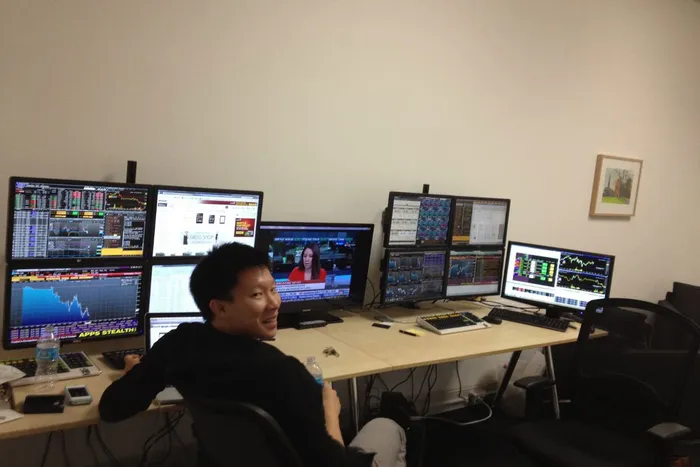
😬3AC
Published a few of weeks ago as the ongoing saga of Three Arrows Capital continues to roll on. Benedict Evans:
“Good run-down of Three Arrows Capital, a crypto hedge fund that decided not to hedge, and went long-only with borrowed assets just as the market turned, triggering a massive wave of collateral calls and a lot of the H1 crypto crash. Playing capital markets with ‘software money’ is still playing capital markets”

⛏️
BTC Proof of Work
It takes an estimated 1,449 kilowatt hours (kWh) of energy to mine a single bitcoin. his graphic by 911 Metallurgist provides a snapshot of the estimated cost of mining bitcoin around the world, using pricing and relative costs from March 23, 2022.
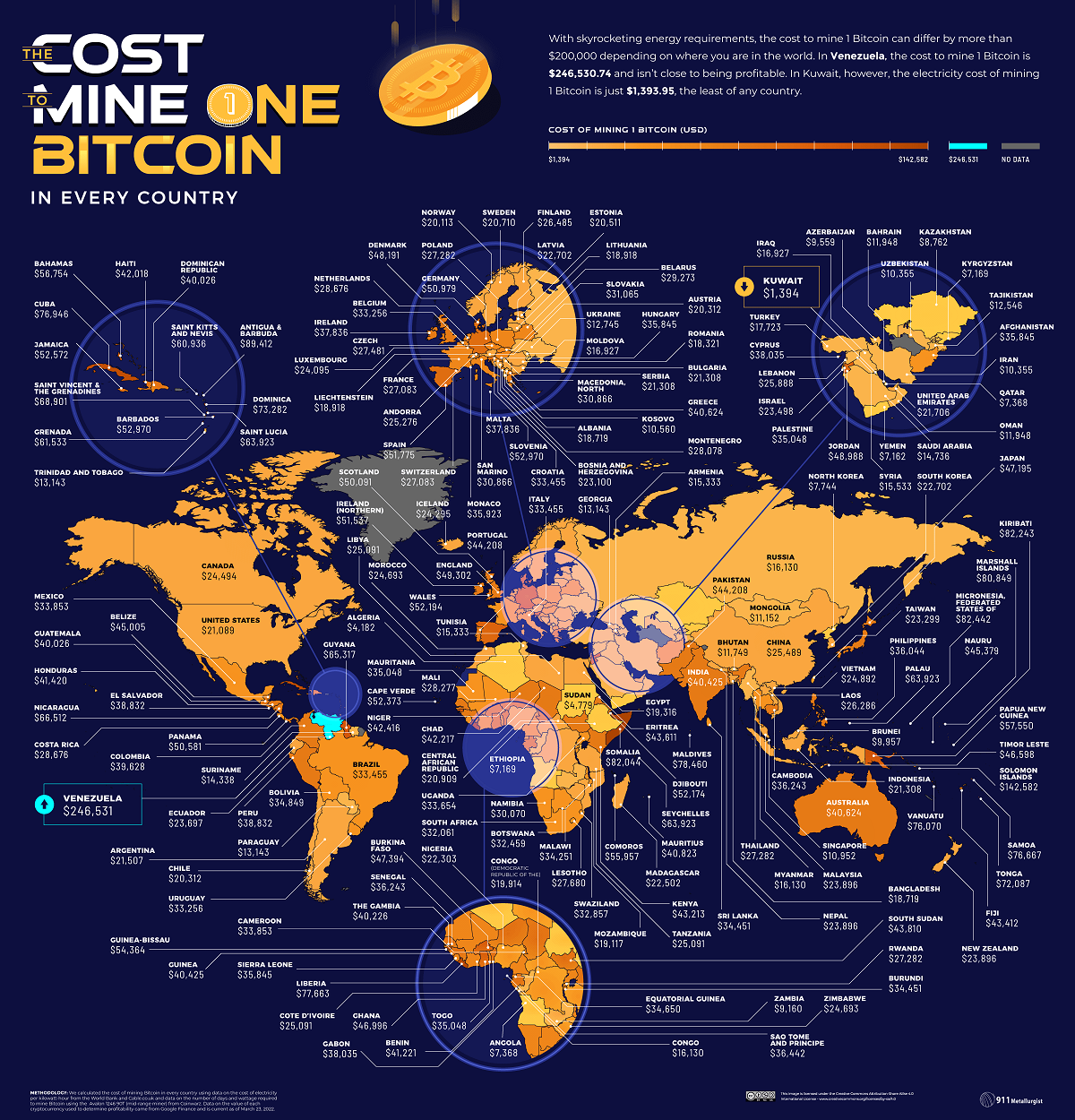
Across the 198 countries included in the dataset, the average cost to mine bitcoin sat at $35,404.03, more than bitcoin’s value of $20,863.69 on July 15, 2022
(Current Top 10)
| Country | (Mining Cost) 1 BTC | Profit |
|---|---|---|
| 1. 🇰🇼 Kuwait | $1,393.95 | $18,362.58 |
| 2. 🇩🇿 Algeria | $4,181.86 | $15,574.67 |
| 3. 🇸🇩 Sudan | $4,779.27 | $14,977.26 |
| 4. 🇾🇪 Yemen | $7,161.77 | $12,594.76 |
| 5. 🇪🇹 Ethiopia | $7,168.91 | $12,587.62 |
| 6. 🇰🇬 Kyrgyzstan | $7,168.91 | $12,587.62 |
| 7. 🇦🇴 Angola | $7,368.04 | $12,388.49 |
| 8. 🇶🇦 Qatar | $7,368.04 | $12,388.49 |
| 9. 🇰🇵 North Korea | $7,744.32 | $12,012.21 |
| 10. 🇰🇿 Kazakhstan | $8,762.00 | $10,994.53 |
CBDC Progress
Central banks around the world are getting involved in digital currencies, but some are further ahead than others. In this map, we used data from the Atlantic Council’s Currency Tracker to visualize the state of each central banks’ digital currency effort.
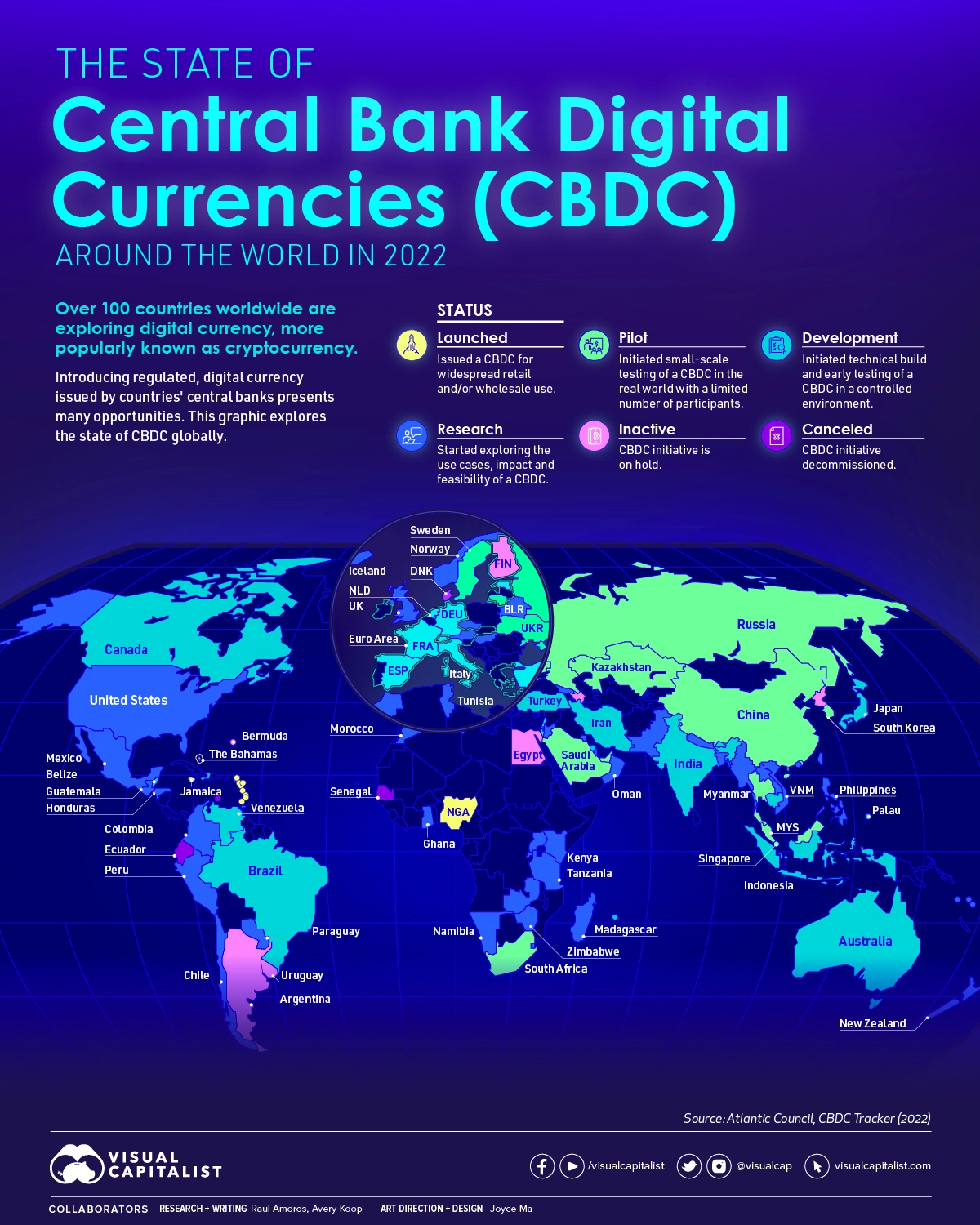
🤖📈 Dept. of Progress
📘What We Owe The Future
This is what Rob Cottrell noted when recommending Will MacAskill’s new book, What We Owe The Future:
📰 Recommended by Kieran Setiya at Boston Review | “It is an urgent question how what we do today will affect the further future. This is the question MacAskill takes up in his new book, What We Owe the Future, a densely researched but surprisingly light read that ranges from omnicidal pandemics to our new AI overlords without ever becoming bleak. It has a lot to teach us about history and the future, about neglected risks and moral myopia”
I’ve been seeing this book in many of my feeds and in new podcasts and video content and these first few paragraphs from 📝Scott Alexander’s review of the tome definitely struck home:
An academic once asked me if I was writing a book. I said no, I was able to communicate just fine by blogging. He looked at me like I was a moron, and explained that writing a book isn’t about communicating ideas. Writing a book is an excuse to have a public relations campaign.
If you write a book, you can hire a publicist. They can pitch you to talk shows as So-And-So, Author Of An Upcoming Book. Or to journalists looking for news: “How about reporting on how this guy just published a book?” They can make your book’s title trend on Twitter. Fancy people will start talking about you at parties. Ted will ask you to give one of his talks. Senators will invite you to testify before Congress. The book itself can be lorem ipsum text for all anybody cares. It is a ritual object used to power a media blitz that burns a paragraph or so of text into the collective consciousness.
If the point of publishing a book is to have a public relations campaign, Will MacAskill is the greatest English writer since Shakespeare. He and his book What We Owe The Future have recently been featured in the New Yorker, New York Times, Vox, NPR, BBC, The Atlantic, Wired, and Boston Review. He’s been interviewed by Sam Harris, Ezra Klein, Tim Ferriss, Dwarkesh Patel, and Tyler Cowen. Tweeted about by Elon Musk, Andrew Yang, and Matt Yglesias. The publicity spike is no mystery: the effective altruist movement is well-funded and well-organized, they decided to burn “long-termism” into the collective consciousness, and they sure succeeded.
That said from everything I’ve sampled about it (I haven’t read it yet… waiting for an Audible credit) it seems fascinating and part of a discussion area which has been quite topical in my reading/listening of late: Progress.
🎙️
Here are a few recent resources on the topic. Firstly, Will’s fascinating discussion with Tyler Cowen.
And similarly with Sam Harris.
And with Dwarkesh Patel.
And incidentally, Patel’s written two interesting posts on the idea of the “Simmer Scenario” when it comes to what GDP, productivity and value growth will do in distant future - hundreds or thousands of years hence, and beyond. Both were very interesting, with the second being a response to some issues Tyler Cowen took with the first.
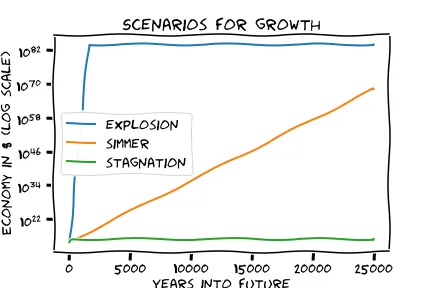
- 📝This Can Go On - Pt 1: The Simmer Scenario
- 📝This Can Go On - Pt 2: Against intuitions about crazy growth
📹
The topic is discussed in Rational Animations’ latest video 📹“Can we make the future a million years from now go better?” (which again invokes Will) as well as highlighted in their previous take 📹“Everything might change forever this century (or we’ll go extinct)” which we highlighted on these pages some time ago.
And lastly we see even Kurzgesagt getting in on the act
👪🌎 Population
What’s your view of Elon Musk’s tweet on population collapse? Agree? Disagree?
Mark these words
— Elon Musk (@elonmusk) August 26, 2022
It doesn’t seem immediately obvious when looking at statistics like these.
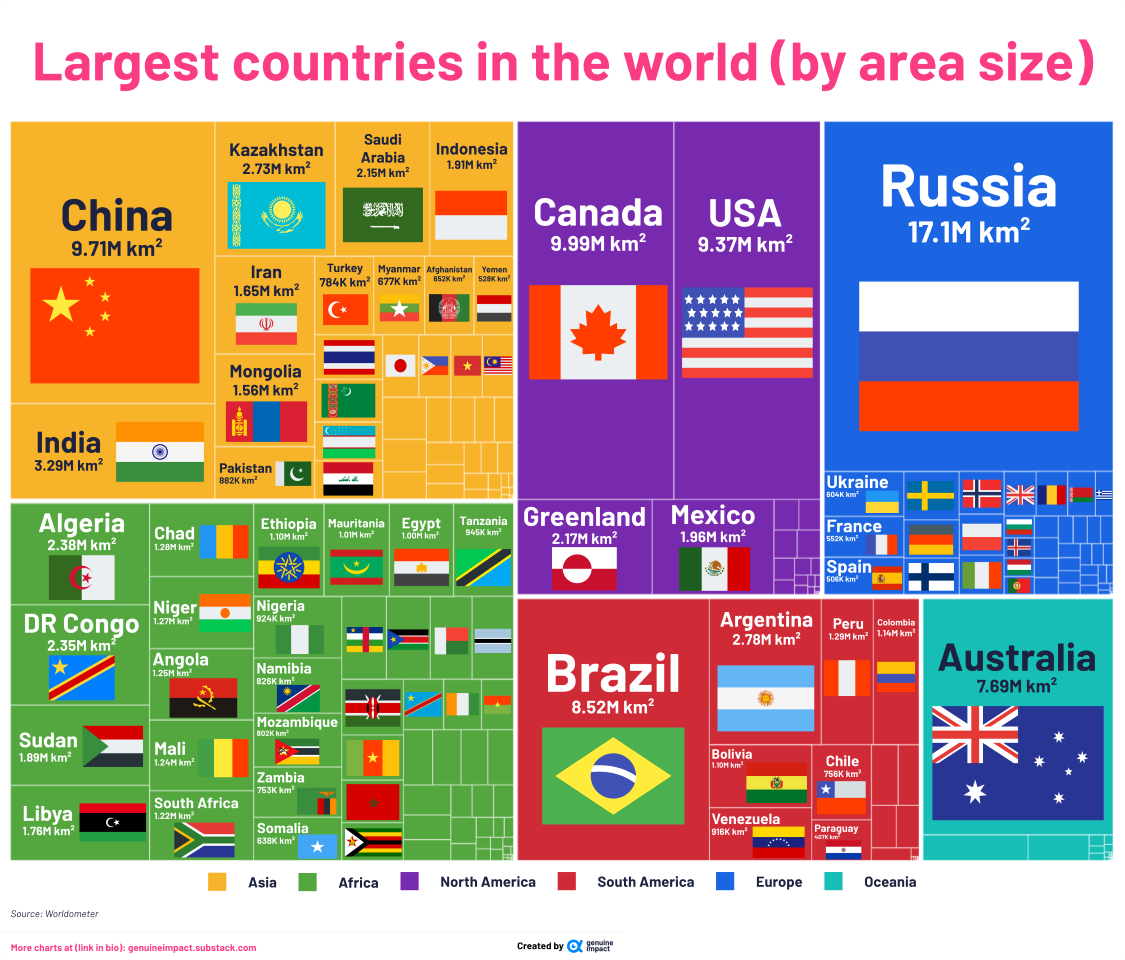
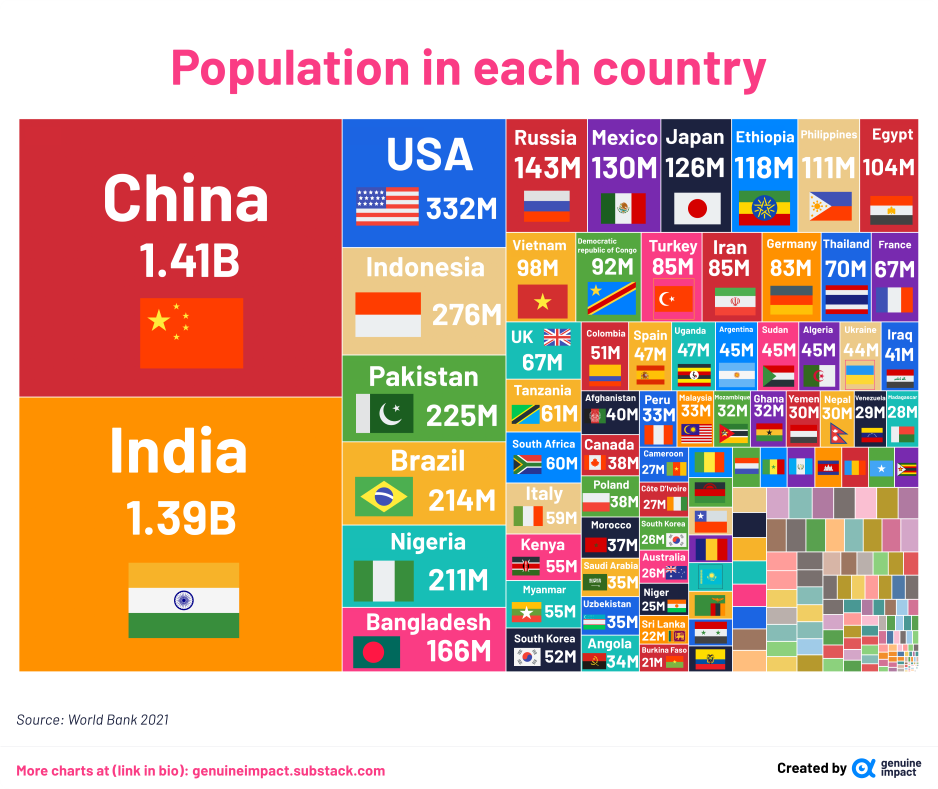
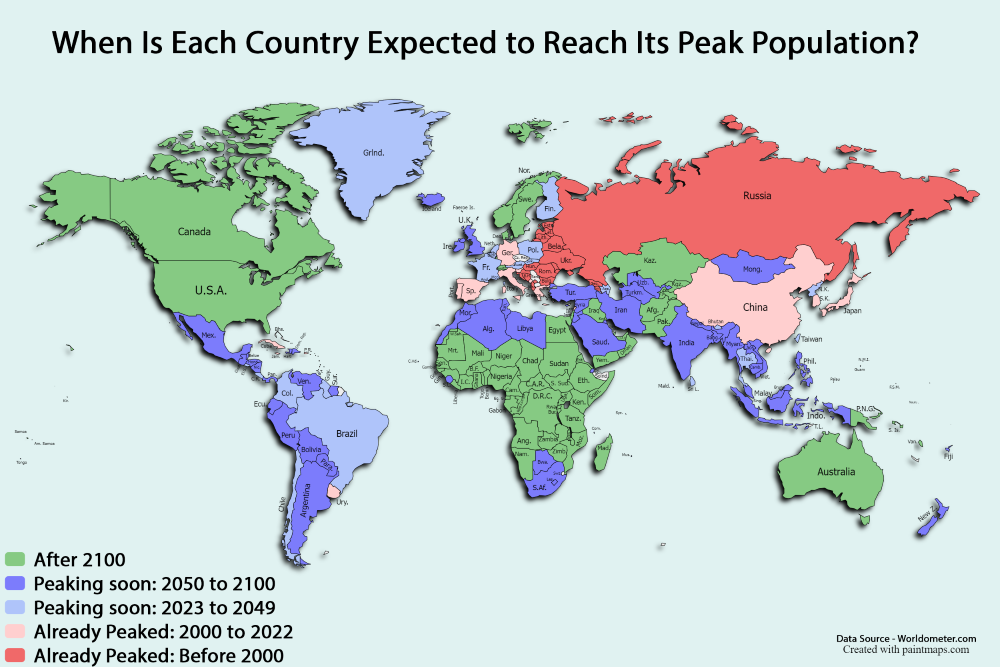
Even when looking at where the next 1000 babies will be born, “under-population” doesn’t intuitively jump out as an issue most are concerned with.
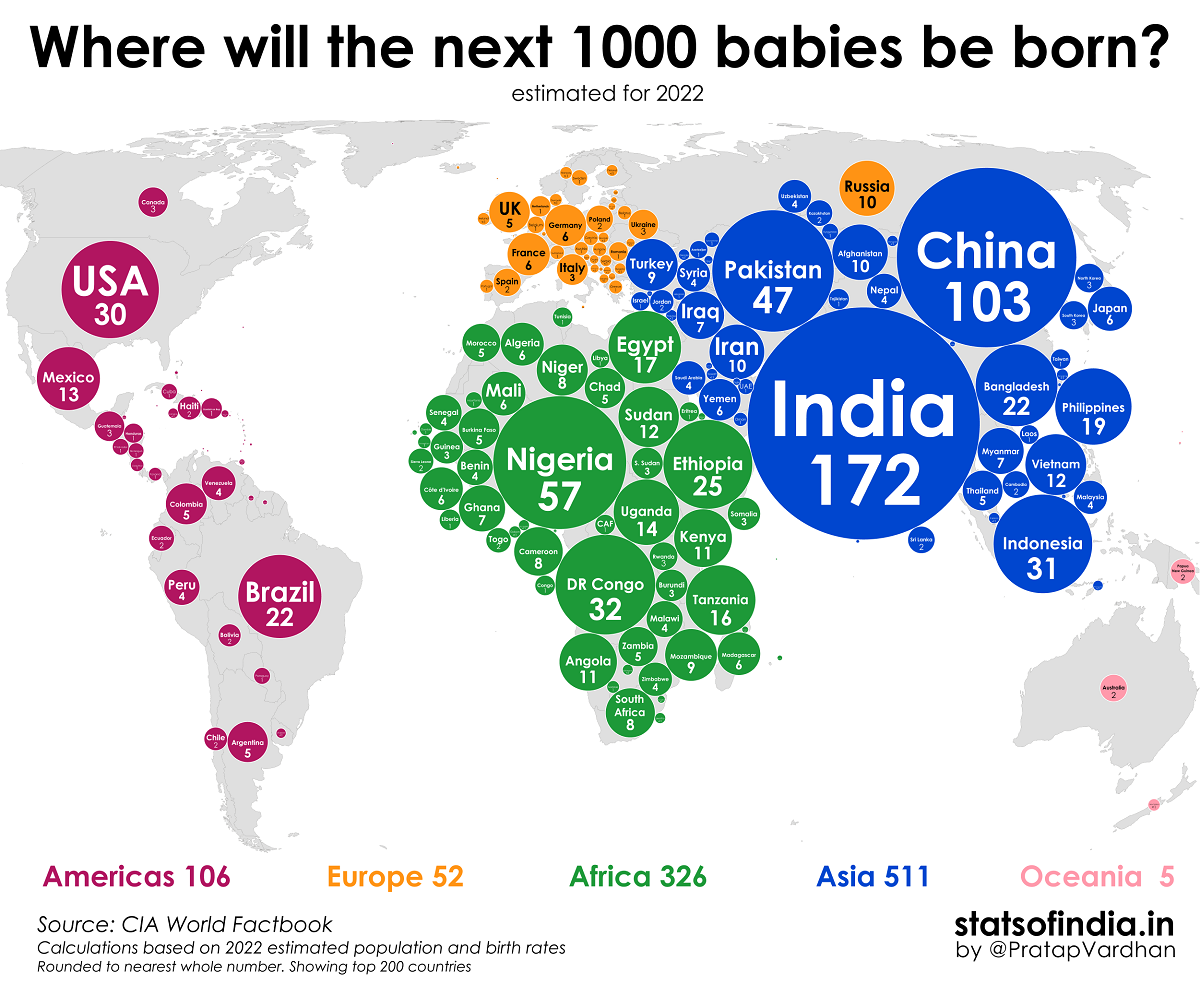
What we know for sure is that he probably isn’t wrong about at least one country: China.
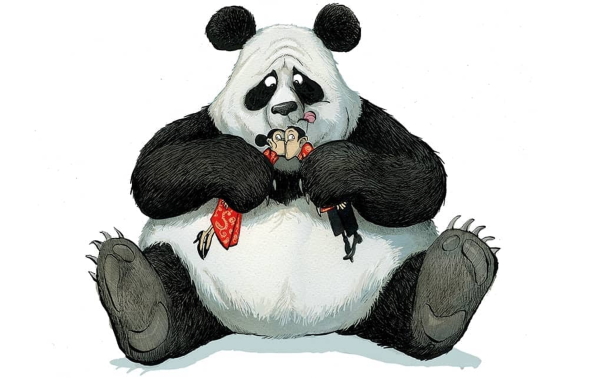
A slew of articles have been penned about all from 📰“Baby bust: China’s looming demographic disaster” to 📰“Leaked Data Show China’s Population Is Shrinking Fast”. Even the discussion on mooting of suggestions to limit abortions in a bid to stave off said population woes.
The fact though is, within the century China’s population, per the CCP’s own estimations, is expected to at least halve, and possibly collapse back down to around ~600m people.
🎙️
This is explored in this discussion between Peter Zeihan, Ian Bremmer and Sam Harris.
🎨 Engineering

A Marvel of Engineering, Erik Johannson, photography/photomanipulation, 2022
📊💭 Economic Thinking

The Economist put out a post on what they reckon you need to know to get a good sense of how economists think.
📰What to read to understand how economists think 🔒 (I’m told blocking javascript can help with getting around paywalls - not that I endorse this of course 👀)
Thinking like an economist, as I see it, comprises two main features. The first is always to think about trade-offs. There is no such thing as a free lunch, as Milton Friedman said. When someone gets something, they almost always give something up in return. If you go out with your friends, you won’t have time to go to the gym. If an economy’s wages go up, dividends might go down, or inflation might go up. And so on. The second is to try, when possible, to put numbers on things. When we say that China’s lockdowns are “strict”, what do we actually mean? If you think “job quality is getting worse every year”, how are you going to measure that? Sometimes it is not easy to quantify ideas, but it’s always good to try
TE’s senior economics writers picked 5 books which they recommend for beginning to study this particular subject.
- Capitalism and Freedom - Milton Friedman
Ignore the fact that Friedman was ultra-libertarian. It does not matter. Very often his arguments were plain wrong. That does not matter either. This book is perhaps the best way to learn to think about trade-offs, because that was how Friedman always thought about the world. For instance, consider minimum wages. Friedman accepts that the people who receive them take home more money. But then the trade-offs come steaming in. What, he asks, about the people who are now priced out of the labour market? Or take regulation of medicines. Unnecessary, he says. Yes, you may save some lives by insisting that pharmaceutical companies jump through hoops before taking a drug to market, as fewer dangerous drugs are sold. But those reviews will also cost lives, he says, by delaying the delivery of safe drugs to patients. (In 2006 we published this article on Friedman and his legacy.)
- The Worldly Philosophers - Robert Heilbroner
In a cheerful, conversational style, Heilbroner takes the reader through the writings of the earliest economists, explaining why their ideas were so revolutionary. Adam Smith did not have much data to hand, but he put numbers to his arguments when he could. So did Karl Marx, who gathered data from newspapers and parliamentary reports. Marx was also a big believer in trade-offs—he argued, for instance, that the world had to endure capitalism in the short term in order, eventually, to reach a socialist utopia in the long term. David Ricardo tried to think through the trade-offs involved in economic activity—for instance, in his theory of comparative advantage.
- Africa: Why Economists Get It Wrong - Morten Jerven
It is great to use numbers, but you have to be careful. This book, by a specialist in African economies, shows how important that is. A lot of economists plug data from Africa into huge statistical models, seeking to explain, for instance, why social trust is higher in one part of a country than another. But a lot of this research is based on shoddy data. For instance, in 2015 the gdp of South Sudan was either unchanged from the year before or shrank by 11%, depending on whether you believe the imf or the World Bank. One lesson from the book (which we reviewed in 2015) is to be upfront about the limitations of your data sources. Another is to try less fancy analysis—say, using descriptive statistics rather than attempting to tease out causality. This is less prestigious and less impressive, but it may produce results that are likelier to stand the test of time.
- Capitalism, Alone - Branko Milanovic
This is the book to read if you want to understand why capitalism—and economists’ way of thinking—has triumphed the world over. By the beginning of the 1990s, it was clear that the capitalist system had defeated the communist one. Today, however, many people yearn to move to a new system, such as “millennial socialism”. A left-leaning scholar, Mr Milanovic sympathises with these feelings. But ultimately he finds many radical prescriptions unconvincing. A country which tried to de-marketise on the scale envisaged by socialists would, he says, be unstable and dissatisfied in other ways. Shifting towards a much shorter working week, for instance, would leave it poorer than its neighbours. For how long would people put up with that? Capitalism is far from perfect, his book shows, yet it is hard to shake the notion that it is the only system that broadly works.
- Freakonomics: A Rogue Economist Explores the Hidden Side of Everything - Stephen J. Dubner and Steven Levitt
This book is so famous that it seems a cliché to choose it, but if you haven’t read it, you really should. (We reviewed it, in 2005.) Fundamentally, it is (again) about trade-offs. It goes through lots of fun examples, showing how policies can have unintended consequences. For example, when a nursery imposed a fine on parents who were late to pick up their kids, more parents started turning up late. The fine had inadvertently removed a moral disincentive for parents to be on time. They thought of it as a price. Other examples in the book include the question of why drug-dealers live with their parents, and whether legalising abortion reduces crime. The book is not everyone’s cup of tea. Some of the studies discussed in it have been called into question. But the overall lesson is a useful one: incentives matter.
🧂🌶️ Spices
For the cooks. Correlation matrix of spices from 91,000 recipes on allrecipes.com
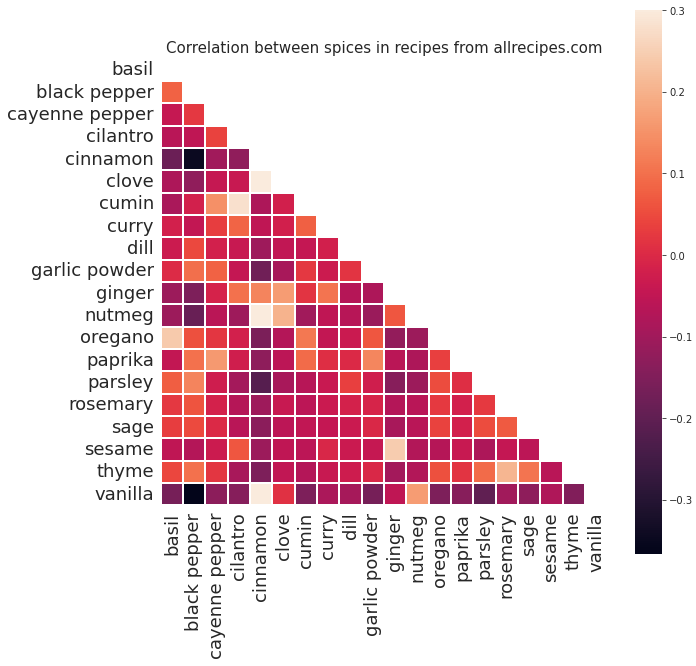
A slightly different visualisation for clarity.
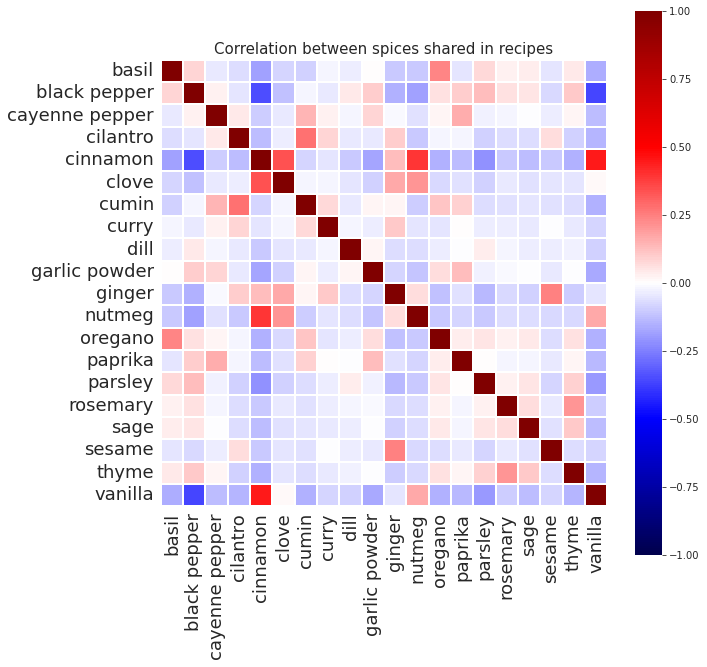
🚆🧍🏽 Human Subway
Underskin: The Human Subway Map (2010)
Sam Loman has taken the subway map infographic style to the human body. Underskin is an infographic that traces the routes of eight different systems within the body (Digestive, Respiratory, Arterial, etc.), and highlights the major connection points.
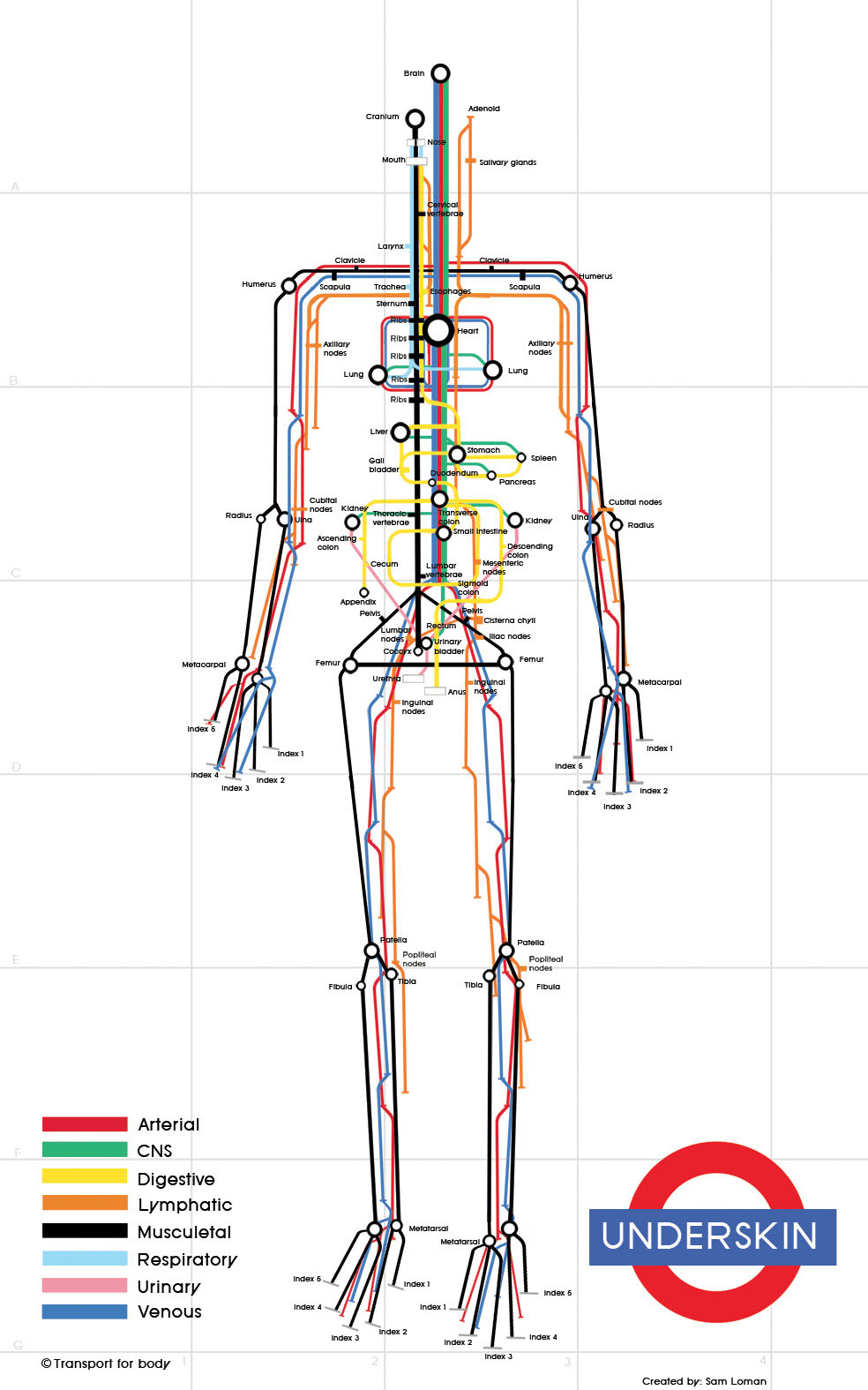
A Subway Map of Human Anatomy (2018)
Interpreting human anatomy in the style of London’s transit system. Created by Jonathan Simmonds M.D., a resident physician at Tufts Medical Center, it’s a simple yet beautifully intuitive demonstration of how efficiently our bodies work
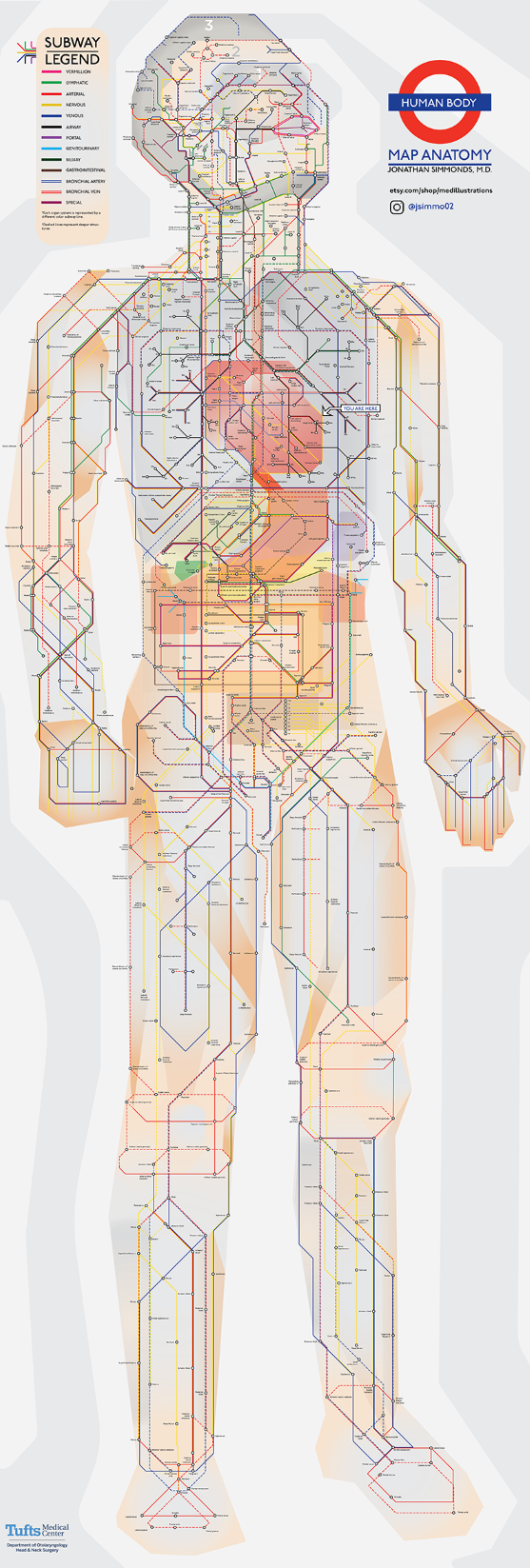
(Hi_Res available at VisualCapitalist)
🎨 Drawing

Drawing, drawing.tiago, charcoal, 2021
🌐🗺️ Internet Map
Martin Vargic at Halcyon Maps created an updated and highly detailed verion of a Map of the Internet - visualising the most popular websites in the style of an old historical map.
The sizes of the Internet “countries” on the map are based on the their relative web traffic, and clustered by type of website.
“After a better part of a year of work, I am excited to show you a brand new Map of the Internet, up to date for the year 2021.”
“Inspired by design of historical maps, this project aims to concisely, but still comprehensively visualize the current state of the World Wide Web, and document the largest and most popular websites over the period of 2020-2021, along with their countless aspects and features.”
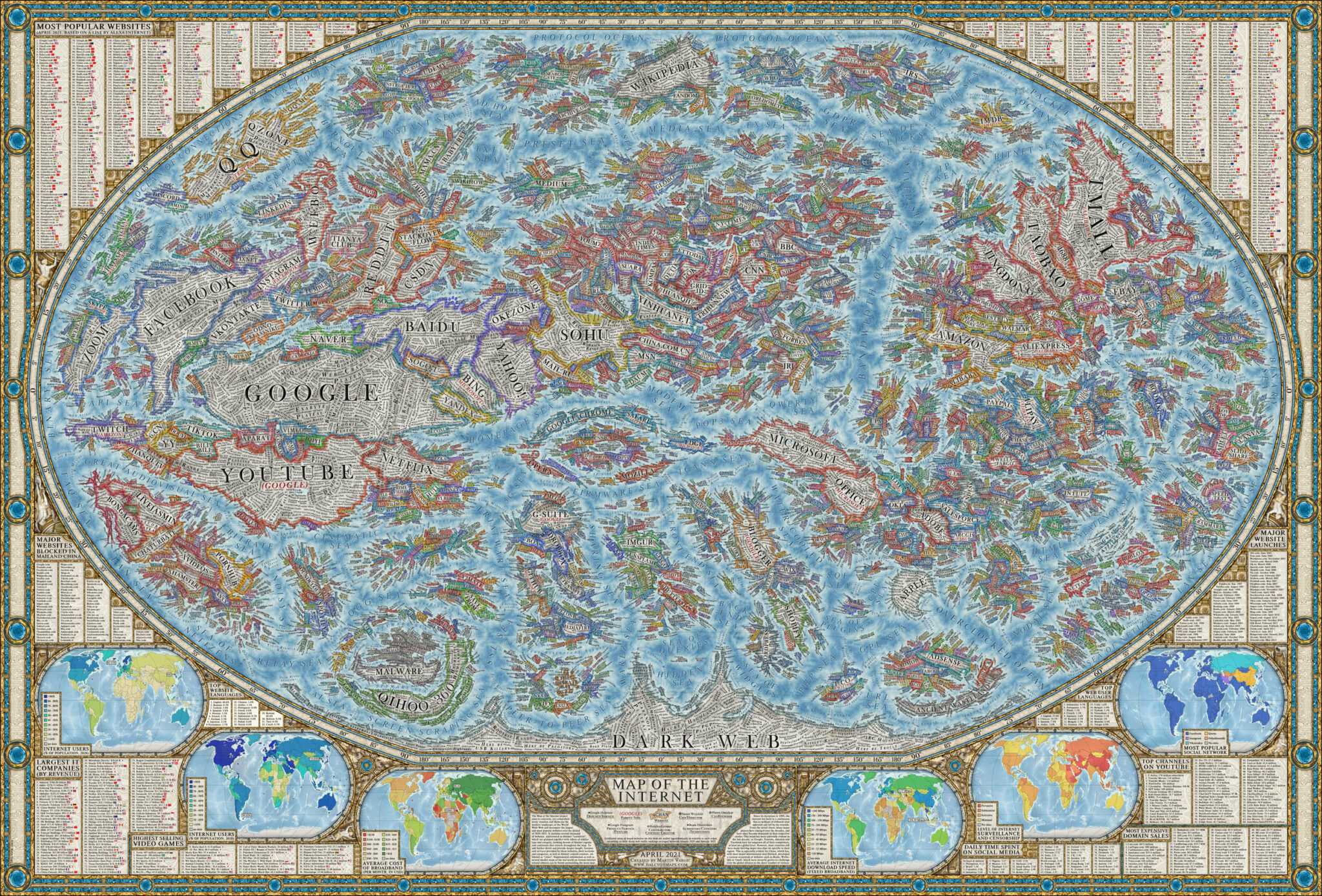
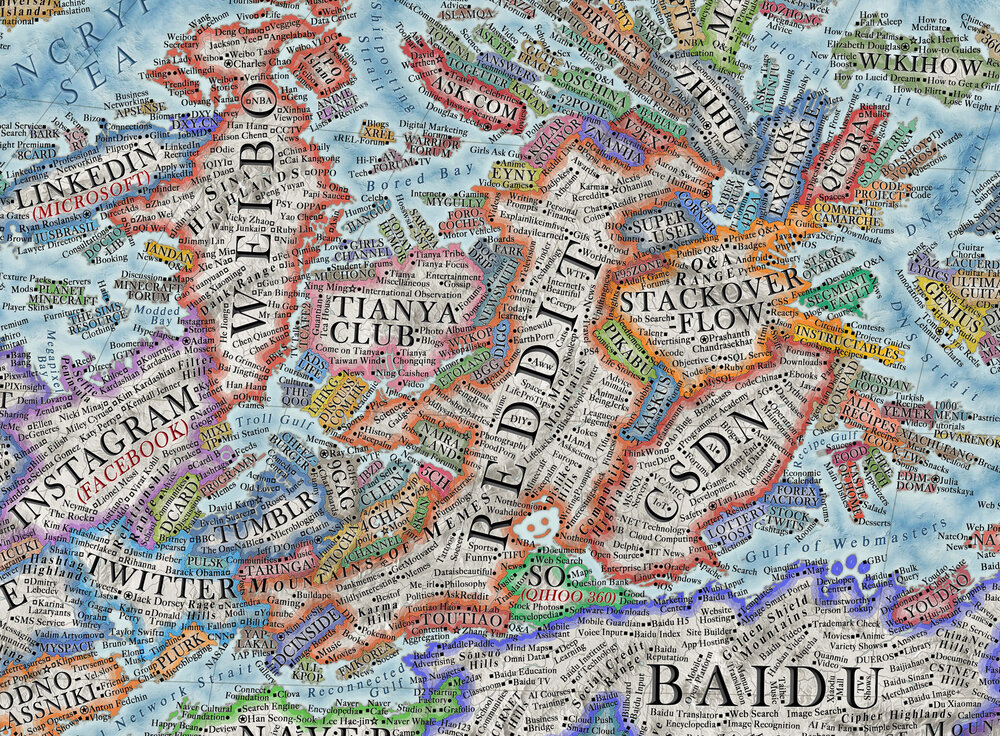
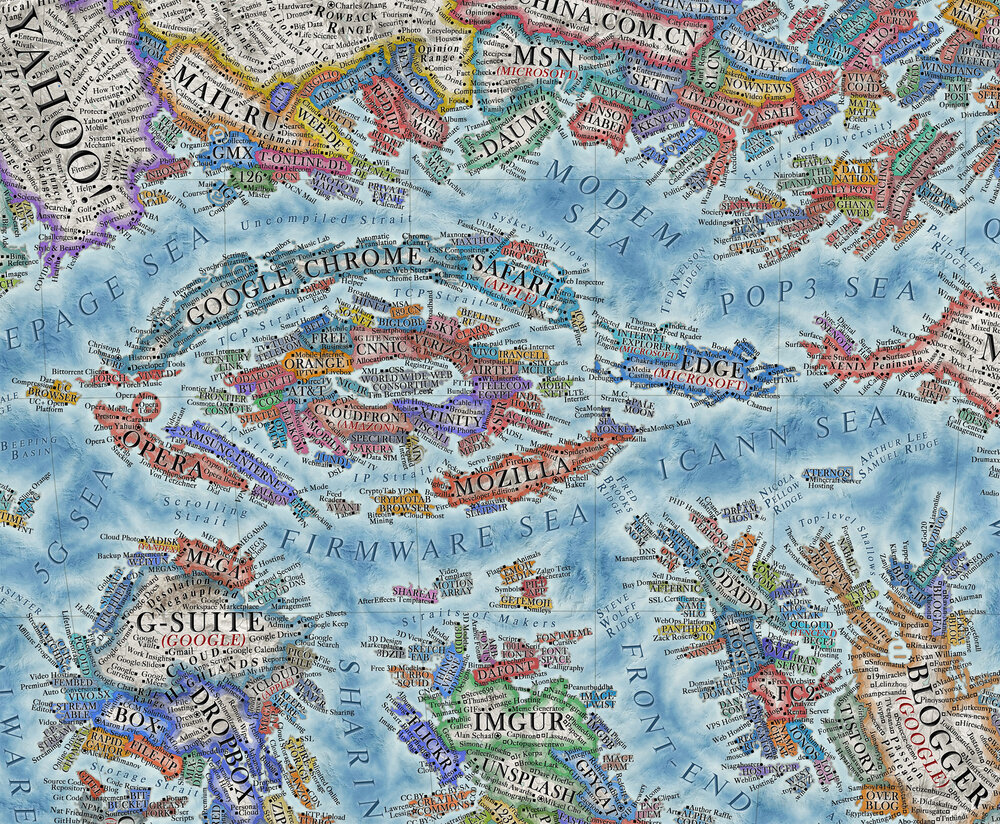
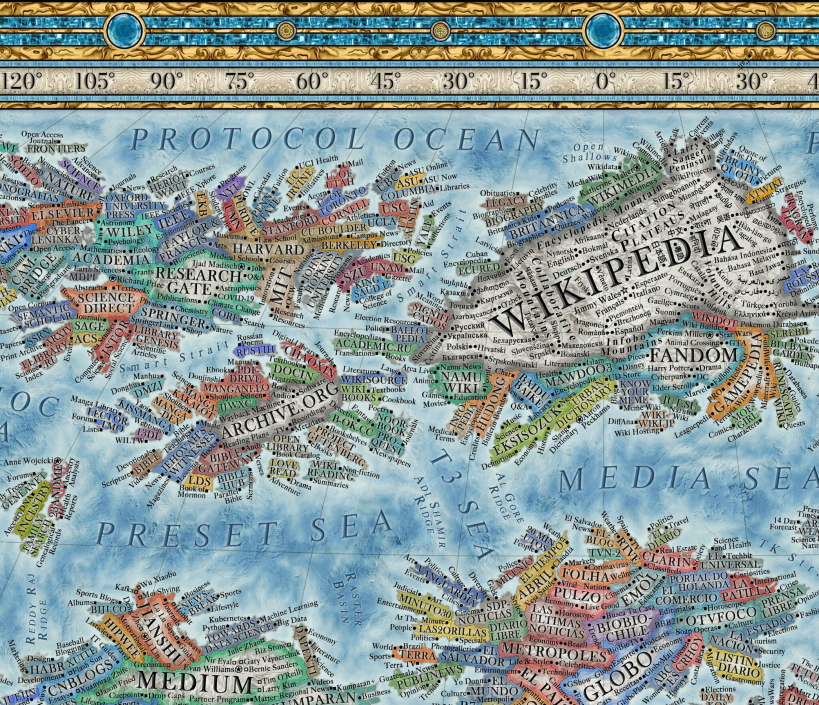
“This work was originally inspired by the “Map of Online Communities“ by Randall Munroe.”
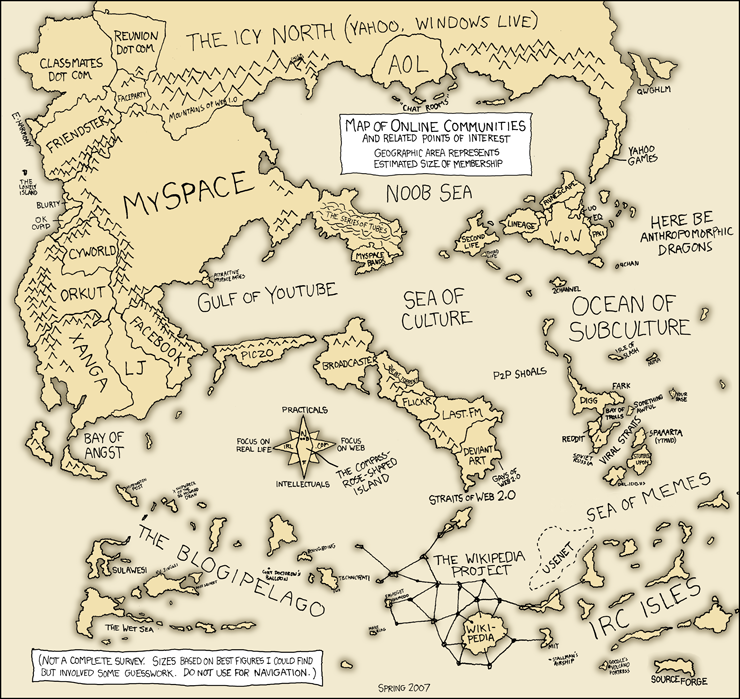
🎨 Fall of Babylon
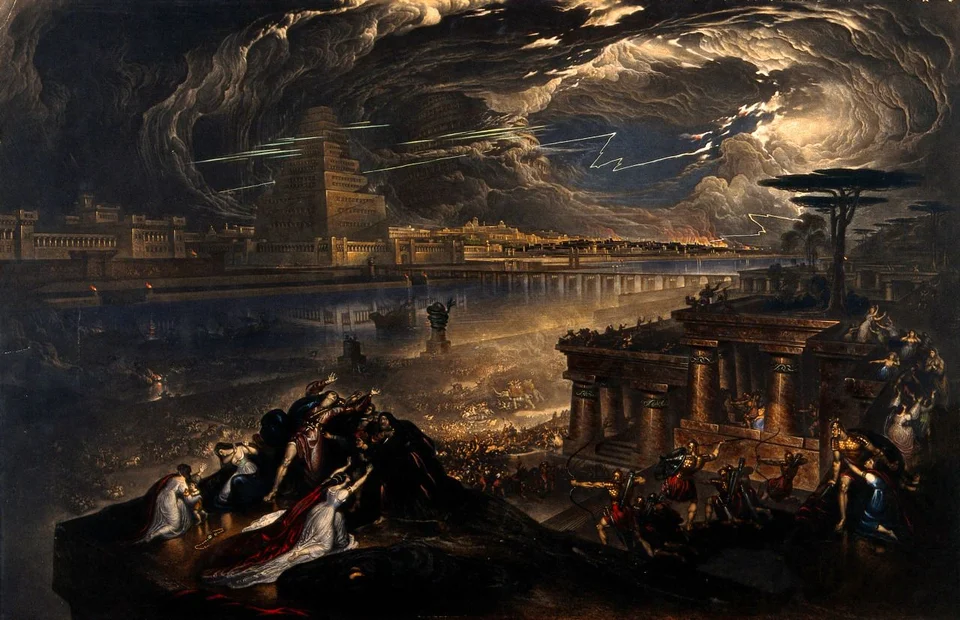
The Fall of Babylon, John Martin, 1819.
💬 Deep Cuts
“The closer men came to perfecting for themselves a paradise, the more impatient they became with it, and with themselves as well. They made a garden of pleasure, and became progressively more miserable with it as it grew in richness and power and beauty; for then, perhaps, it was easier to see something was missing in the garden, some tree or shrub that would not grow. When the world was in darkness and wretchedness, it could believe in perfection and yearn for it. But when the world became bright with reason and riches, it began to sense the narrowness of the needle’s eye, and that rankled for a world no longer willing to believe or yearn.” ― Walter M. Miller Jr., A Canticle for Leibowitz
🎨 One More Thing
Matt Damon explains why they don't make movies like they used to. pic.twitter.com/BhWypzcsgQ
— Todd Spence (@Todd_Spence) August 21, 2022
📧 Get this periodically in your mailbox
Thanks for reading. Tune in again. And please share with your network.
Links The Week That Was Pickings
fa17eab @ 2023-09-18